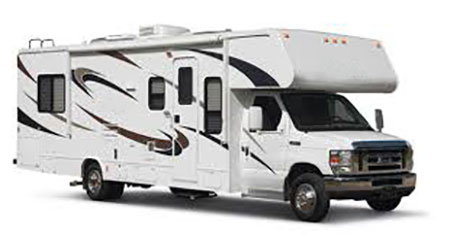Nothing says freedom quite like a recreational vehicle. Having the ability to travel from one place to another and still enjoy the comforts of home is very appealing. Whether you intend to explore locally or take a road trip across America, mishaps happen. That’s why you require some protection. While some personal Auto Insurance policies allow you to add an RV, you should first consider the specialty coverage that comes with RV Insurance. As you begin your search for the right RV Insurance policy, below are five questions that to ask first.
What Does RV Insurance Cover?
While the specifics of your RV Insurance policy may vary, the following coverage options are typically offered, up to the policy limits established at the time of purchase.
- Liability Insurance. If you are accused of or found at fault for causing injury to another person or property, this coverage can pay medical bills, judgments and even legal expenses.
- Comprehensive Coverage. This covers the cost of repairing or replacing your RV due to loss or damage from non-collision-related events like theft, fire, vandalism and hail.
- Collision Coverage. This helps cover the cost of repairing or replacing your RV if it is involved in a motor vehicle accident.
- Contents Coverage. Everything in your RV, such as electronics, kitchenware and clothing is covered in the event that they are lost, damaged or destroyed.
- Medical Payments. This coverage pays for the medical expenses of you or your passengers due to an accident.
What are the Use Limitations of RV Insurance?
Some RV Insurance policies have “usage” limits with the idea that you are using your motorhome as a recreational vehicle and not a full-time home. For example, there may be a limit of 150 days per year of RV use in which your coverage is effective. If you need additional coverage, ask your agent about full-time RV Insurance coverage.
What Factors Influence RV Insurance Rates?
Several factors are considered when your RV insurance rates are calculated. The most important one is your location. The next factor is the type and age of your motor home. Other rate factors include your coverage and deductible choices, personal driving history and insurance claim history.
Are There Special RV Insurance Coverages I Should Consider?
There are several add-ons that you may want to consider on your RV Insurance policy. For example, no one likes to get stranded and have their vacation time cut short. Therefore, Roadside Assistance is a popular add-on coverage. Also, if you’re financing a new RV, you may want to consider Loan/Lease Coverage to cover the gap between what you owe and what your RV is worth in the case of a loss.
Are RVÂ Insurance Discounts Available?
Your insurance agent understands that you want to save money. Wouldn’t those dollars be better spent on that next big adventure? One typical way to save on RV Insurance is to use the same company that insures your home and car. Also, installing anti-theft devices on your RV, taking accident prevention courses, and keeping your RV in a secure storage facility can qualify you for additional insurance discounts.
Most RVs are valuable, and this asset isn’t something that you want to leave uninsured. In most states, it’s illegal to operate an RV on the road without insurance. As you shop for RV Insurance, remember that not all coverage and insurers are the same. Contact us to find out how you can find the best RV Insurance rate with a reputable company you can trust.
The information in this article is obtained from various sources. This content is offered for educational purposes only and does not represent contractual agreements. It should not replace manuals or instructions provided by the manufacturer or the advice of a qualified professional. The definitions, terms, and coverage in a given policy may be different than those suggested here. Such policy will be governed by the language contained therein, and no warranty or appropriateness for a specific purpose is expressed or implied.


